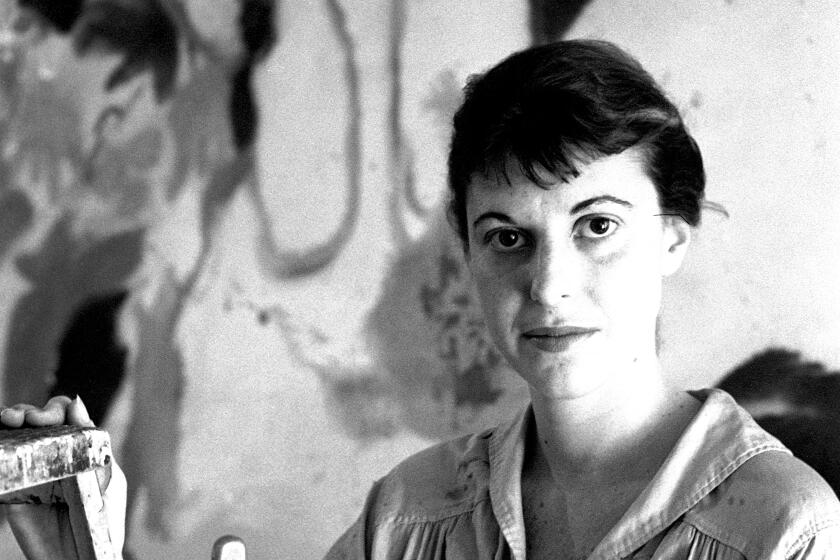Review: Long overshadowed, Elizabeth Hardwick has a biography. She deserves even better
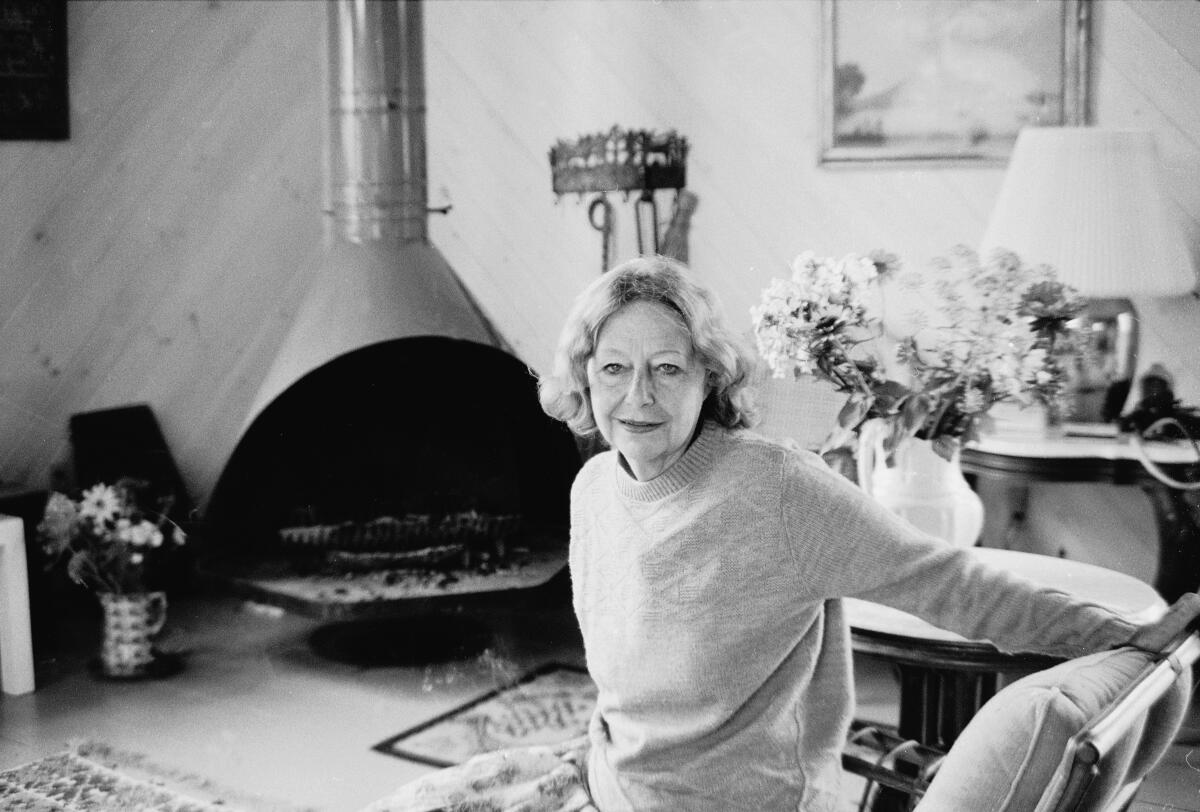
On the Shelf
'A Splendid Intelligence: The Life of Elizabeth Hardwick'
By Cathy Curtis
Norton: 400 pages, $35
If you buy books linked on our site, The Times may earn a commission from Bookshop.org, whose fees support independent bookstores.
The very thought of biography made the critic and novelist Elizabeth Hardwick anxious. In 1973, she wrote to the poet Elizabeth Bishop, “I can’t tell you how I dread the future with biographies. ... Fortunately I’ll be dead before most of them come. ... Opinion, analysis, can be unfair but the reader has the right to propose his own estimate and judgment at the moment he is reading — the other is simply an appropriation.”
This apprehension was hard-earned. Hardwick’s ex-husband, Robert Lowell, appropriated her personal letters during a period of estrangement for his Pulitzer Prize-winning poetry collection “The Dolphin.” This unauthorized act triggered a powerful sense of violation and grief. It also made a lasting impact on her legacy. For too long, despite her prodigious writing and influence as a founder of and frequent contributor to the New York Review of Books, Hardwick was best remembered as Mrs. Robert Lowell, immortalized through his warped view of their marriage.
Compared with her fellow cultural critics Joan Didion and Susan Sontag, Hardwick enjoyed a more understated degree of success. She was a professor at Barnard College with less time and energy for celebrity or the publication of books, more often concentrating her efforts on individual essays and criticism. Yet she was a force in American letters, prompting Sontag to state, “I think she writes the most beautiful sentences, more beautiful sentences than any living American writer.”
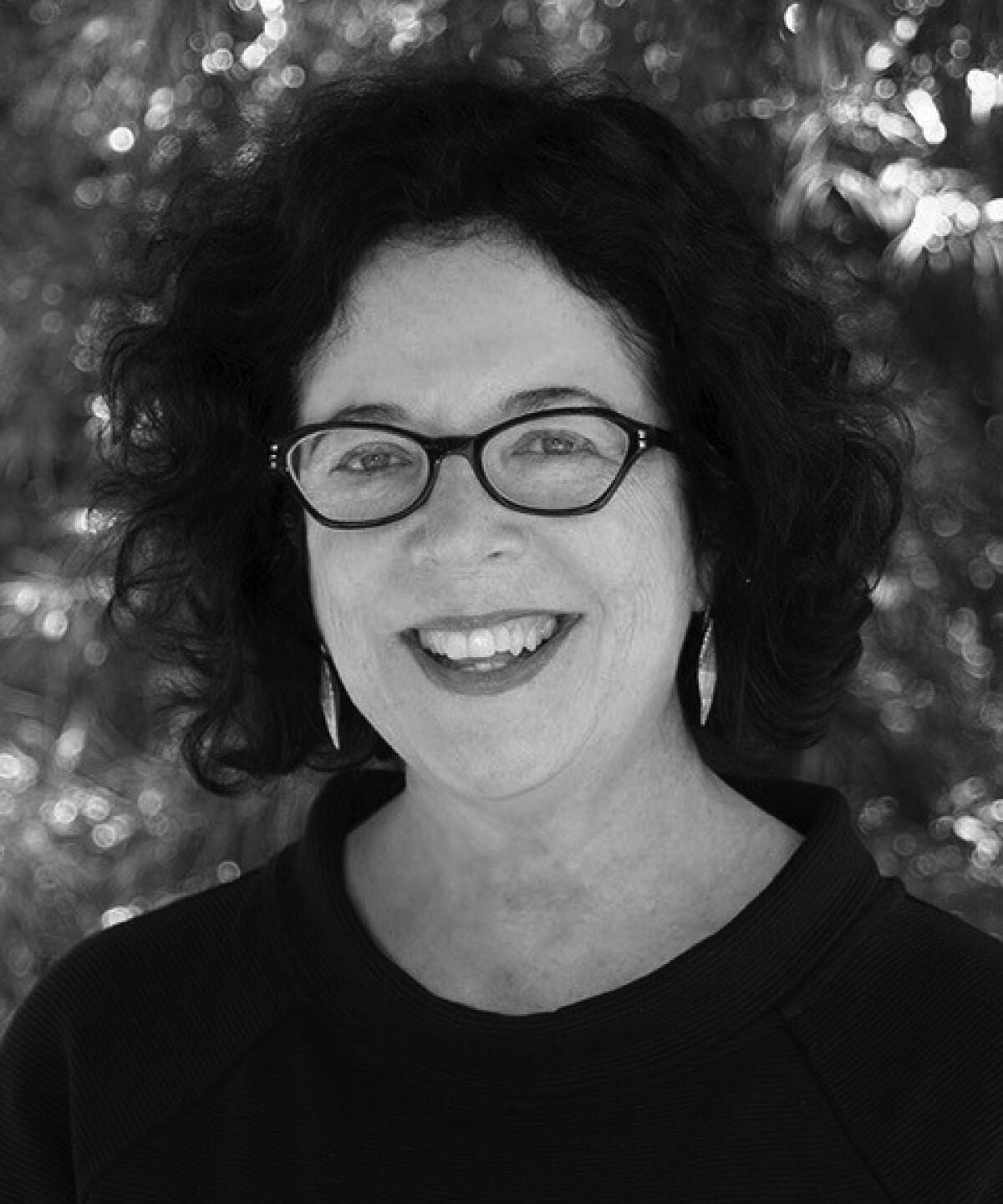
A renewal of interest in late 20th century women is finally allowing Hardwick’s reputation to catch up with that assessment. A 2019 biography of Sontag won the Pulitzer; just last fall, Adrienne Rich was the subject of her first biography; Audre Lorde, whose nonfiction was recently reissued, will be the subject of a forthcoming biography. And with the publication of Hardwick’s collected essays in 2017, the 2019 release of “The Dolphin Letters” and a coming collection of unpublished essays, it’s an ideal moment for a critical look at her legacy. Enter Cathy Curtis with “A Splendid Intelligence: The Life of Elizabeth Hardwick,” a biography whose disappointments often justify its subject’s skepticism of such efforts.
Interestingly enough, the final book Hardwick published was a biography. She eschewed a linear format for “Herman Melville” (2000), analyzing the novelist’s work in topical chapters. Although her editor, James Atlas, called it “idiosyncratic,” two decades later it might keep good company with biographies such as Imani Perry’s “Looking for Lorraine” (on Lorraine Hansberry) and Jenn Shapland’s “My Autobiography of Carson McCullers.” Steeped in cultural and often personal context, this newer breed of life study often feels fresher than any plodding chronology could.
Jenn Shapland’s “My Autobiography of Carson McCullers” and Mark Doty’s “What Is the Grass,” about Walt Whitman, are hybrid memoir-biographies.
Contrast these with Blake Bailey’s “Philip Roth.” Published this year and then withdrawn over credible allegations against its author, it was an overinflated failure for many reasons. But let’s focus on the hubris of a subject so obsessed with biography that he courted and rejected many biographers before settling on one whose adoration couldn’t see beyond petty personal battles and sycophantic readings of his works. Today, readers want a rigorous biographer whose job isn’t to flatter — or flatten — the subject.
Alas, “A Splendid Intelligence” is no corrective in this sense. Curtis hews closely to a traditional format, keeping the biographer at a remove, occupying the role of an archivist who presents evidence on a timeline. Rather than set out with a blazing prologue delineating Hardwick’s renewed importance as an invigorating writer through literary examples and personal accounts, Curtis quietly and predictably asserts Hardwick’s place in 20th century American letters as someone far more than a spurned wife, immortalized by her own misappropriated words.
This choice strikes an oddly defensive chord. Drawing immediate attention to her relationship with Lowell merely reinforces this association. Having read her major works, as well as “The Dolphin Letters,” I could think of countless moments that would speak more powerfully by example. Instead, Curtis moves from that brief introduction to a largely dry and linear chronicle of her life.
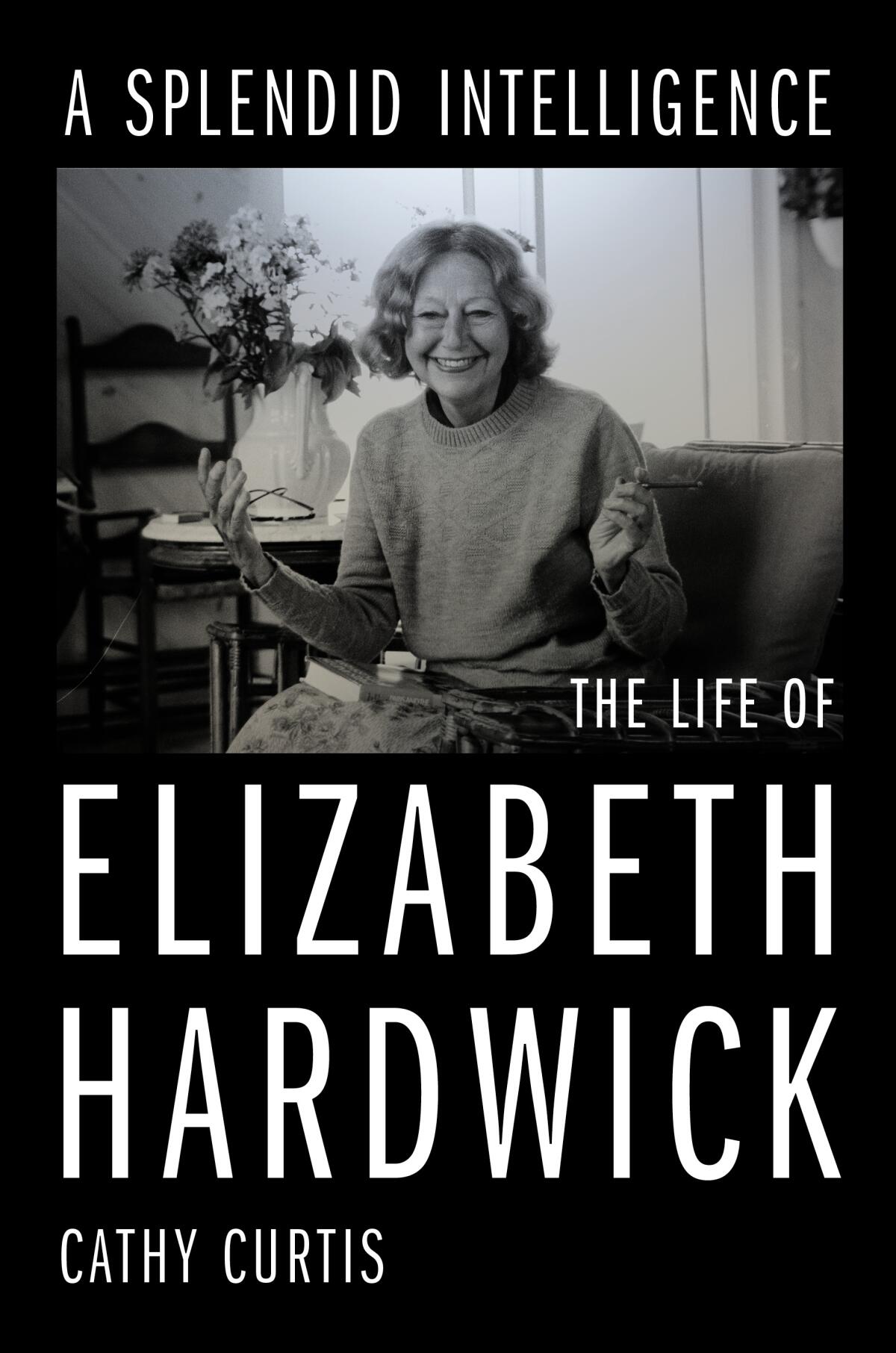
Hardwick’s desire for biographical restraint looms as Curtis dutifully recounts Hardwick’s youth and the struggles of her early years in New York City. Domestic and real estate concerns are echoed through close readings of Hardwick’s often autobiographical stories. The book builds momentum in tandem with Hardwick’s career as her marriage with Lowell takes on a certain magnetic inevitability. Lowell is Hardwick’s intellectual foil, and, tempestuous as it may be, their relationship forced both spouses to stretch the limits of art.
While Lowell made literal art of their correspondence, their separation forced Hardwick to make certain economic choices. Their divorce prompted her to recommit to teaching, remain in the United States and write for a wider audience to make ends meet. The emotional impact of their rupture, meanwhile, prompted her to take bolder risks in her books. Curtis’ respectable impulse to downplay the period prevents her from examining what brought Hardwick to this point in her marriage after Lowell’s infidelities and mental health interventions — and, more importantly, what she was able to accomplish after she broke loose.
Blake Bailey called allegations of sexual misconduct, which first surfaced at the end of a blog post about his new book, “totally false.”
Where the biography picks up considerably is its final chapter, rightly titled “Literary Lion (1980-2007).” Here, Curtis reveals another layer of Hardwick’s accomplishments, demonstrating how years of engagement granted the author influence in politics, literature and academia. Former students (Sigrid Nunez, Mary Gordon and Susan Minot, among others), as well as contemporaries, step in to fill in a more vivid and complete picture of the writer. One fellow author confided to Curtis that Hardwick was not “interested in straight answers. It’s not about a statement that will make sense of things. It’s about all of the statements that question the truth of things.”
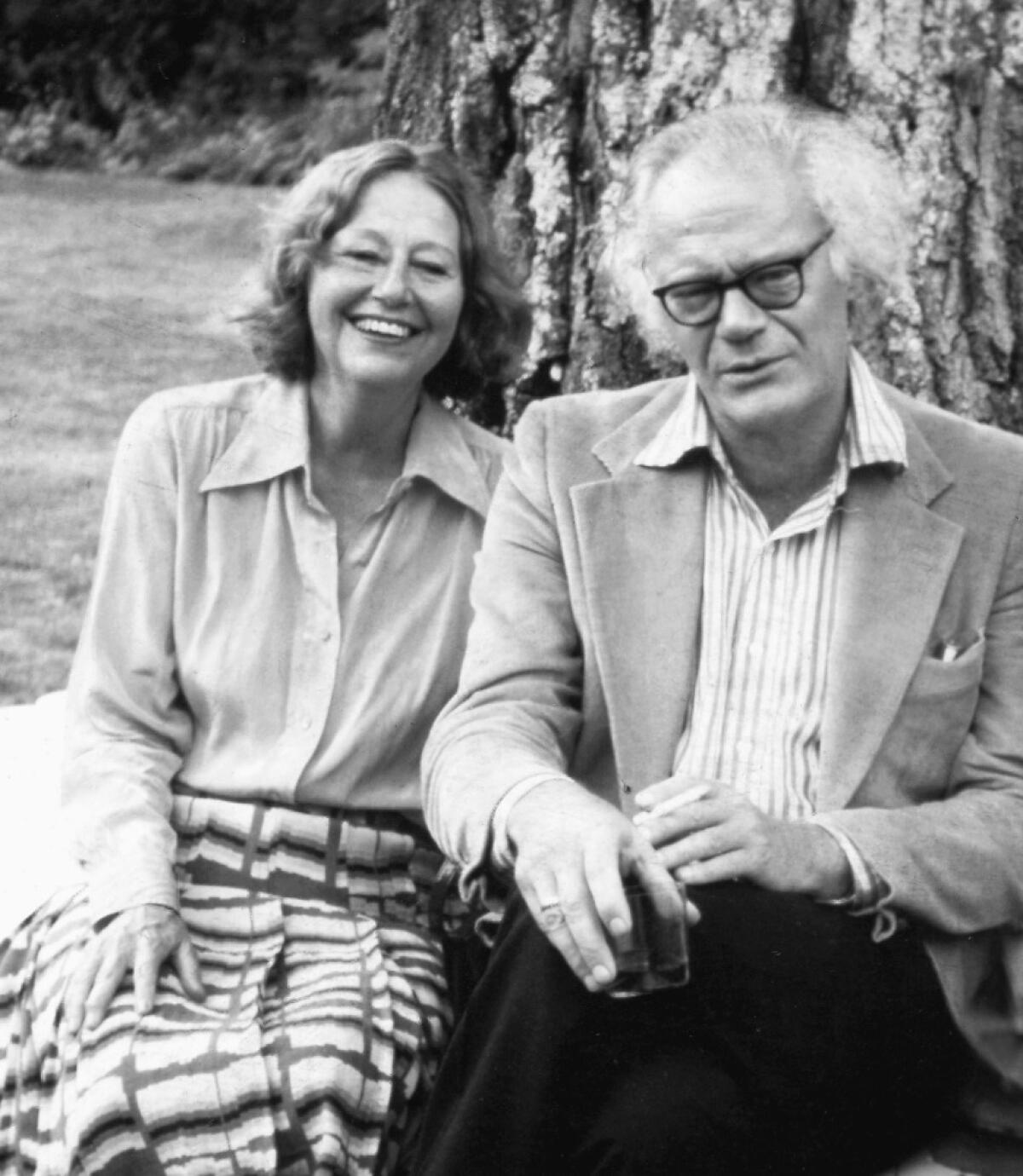
Hardwick remains important because her literary eye rattled conventional perception. As meticulous and observant as her nonfiction is, her fiction revealed subversive new insights into self-awareness and critical evaluation. Curtis was privy to her body of work, her letters and many interviews. “A Splendid Intelligence” is an admirable work that fills a glaring void in the 20th century American literary landscape. Yet there’s something in her project that cries out for a less conventional approach.
Group biographies remove the overwhelming focus on the individual in a way I believe would meet with Hardwick’s approval. Intuition and atmosphere, as well as collective impact, matter more than the exact details of one person’s life as a driving force in the work. Saidiya Hartman’s groundbreaking “Wayward Lives, Beautiful Experiments” springs to mind, as well as Mary Gabriel’s “Ninth Street Women.” Curiously, Curtis has written biographies of two of the subjects in “Ninth Street Women” — Elaine de Kooning and Grace Hartigan. She is a writer committed to championing women underappreciated for their contributions.
While it’s unclear whether “A Splendid Intelligence” will draw new readers to Hardwick, it’s a necessary and welcome biography, raising larger questions about literary influence and biography’s role in literary prestige — even if it doesn’t always answer them.
Andrew Nemerov’s ‘Fierce Poise: Helen Frankenthaler and 1950s New York’ charts the rise of an Abstract Expressionist painter knocked for her privilege.
LeBlanc is the books columnist for Observer; she lives in Chapel Hill, N.C.
More to Read
Sign up for our Book Club newsletter
Get the latest news, events and more from the Los Angeles Times Book Club, and help us get L.A. reading and talking.
You may occasionally receive promotional content from the Los Angeles Times.
